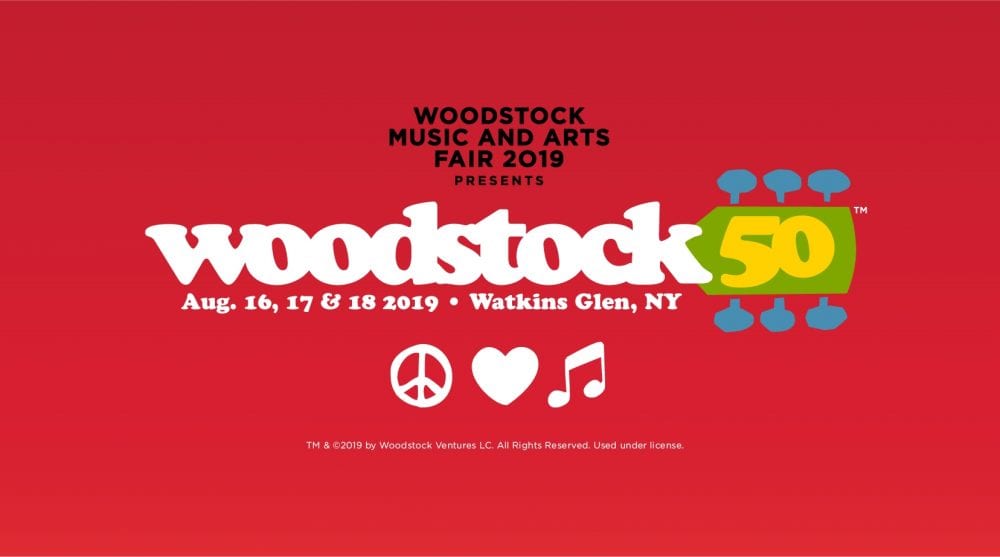Update (as of April 29): Woodstock 50 organizers deny that the festival has been outright cancelled, telling the Poughkeepsie Journal “Woodstock 50 vehemently denies the festival’s cancellation and legal remedy will (be) sought.”
(as of April 30): Founder Michael Lang revealed that the festival is not canceled, noting that “Woodstock never belonged to Dentsu, so they don’t have a right to cancel it.” He said organizers are still working with various partners ahead of the event.
—
After months of hyping-up Woodstock 50, which was set to take place this August to commemorate the 50th anniversary of the 1969 festival, organizers have called-off the event.
According to Billboard, officials with Dentsu Aegis Network, who were funding the event, released a statement noting that they don’t believe the festival could be “executed as an event worthy of the Woodstock Brand name.”
“It’s a dream for agencies to work with iconic brands and to be associated with meaningful movements,” the statement reads. “We have a strong history of producing experiences that bring people together around common interests and causes which is why we chose to be a part of the Woodstock 50th Anniversary Festival. But despite our tremendous investment of time, effort and commitment, we don’t believe the production of the festival can be executed as an event worthy of the Woodstock Brand name while also ensuring the health and safety of the artists, partners and attendees.”
“As a result and after careful consideration, Dentsu Aegis Network’s Amplifi Live, a partner of Woodstock 50, has decided to cancel the festival. As difficult as it is, we believe this is the most prudent decision for all parties involved.”
No other information has been given, and producer Micheal Lang has not publicly commented on the decision at this time. Just last week, Lang addressed cancellation rumors, noting that they were just that: rumors.
“Woodstock is a phenomenon that for 50 years has drawn attention to its principles and also the rumors that can be attached to that attention,” he said.
While it is unknown why exactly the festival production would not be “executed as an event worthy of the Woodstock Brand name,” the festival has already faced some hardships. Earlier this year, when Lang announced the official event, the lineup was delayed twice until March, and headliners The Black Keys had dropped out due to a “scheduling conflict.” Then, tickets were slated to go on sale last Monday on Earth Day, however, the sale was delayed as organizers waited to obtain a mass gathering permit from the New York State Department of Health.
Amid the delays, ticket prices were announced. Three-day passes would have been $450, and no single day passes could be purchased. Originally, Lang predicted that a crowd of six figures was expected, but that number dropped to 75,000. The inability to buy single day passes, the remote location in Watkins Glen, or the rivalry concerts at Bethel Woods Center for the Arts could be the cause of the downfall.
The festival would have included performances from Santana, John Fogerty, and Grateful Dead, who appeared at the original event 50 years ago, as well as modern-day top acts like Halsey, Imagine Dragons, Jay-Z, Miley Cyrus, and The Killers. Many baby-boomers were upset when the festival was first announced, claiming that the lineup was “sub-par.” Yet, their opinions might have actually aligned with organizers’ concerns that indeed nothing could compare to the original Woodstock.



